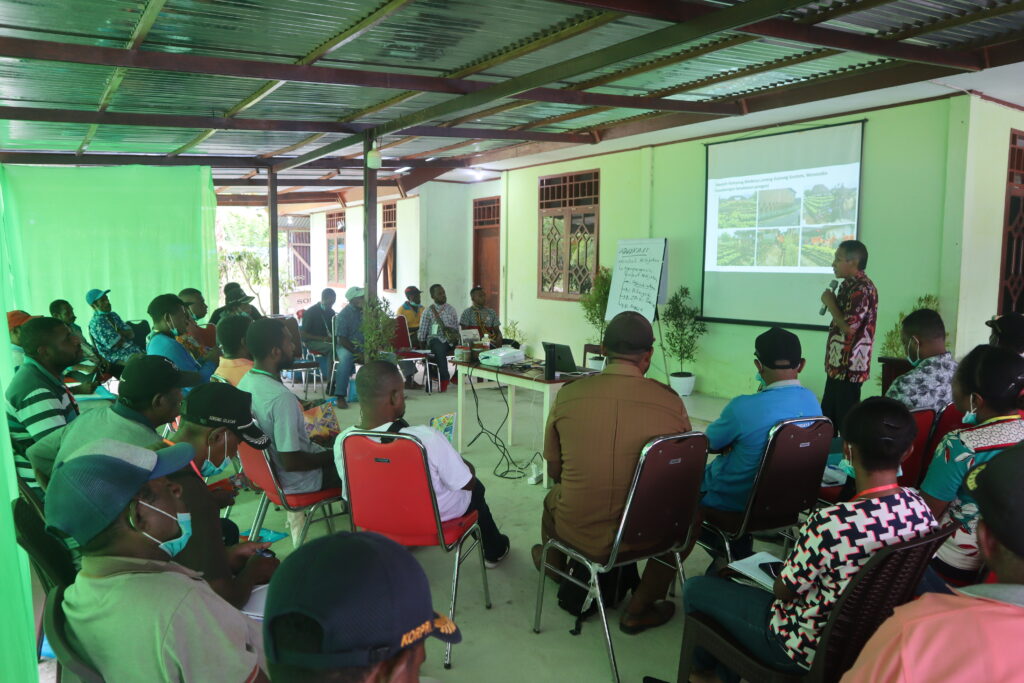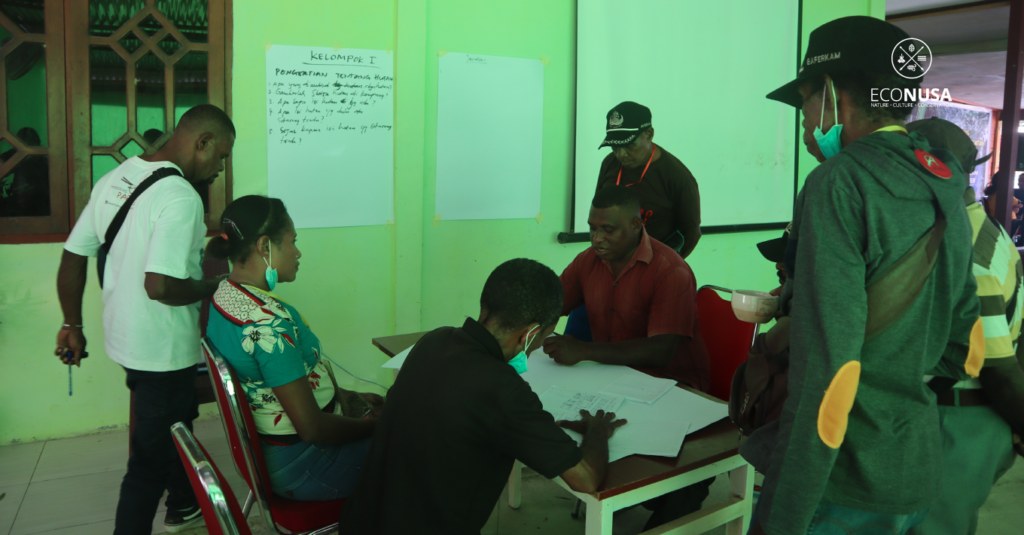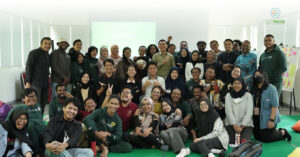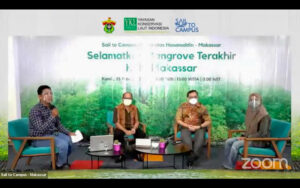
Forests in Tanah Papua do not only contribute oxygen to the world. They also serve as the sources of livelihood to the indigenous people and habitat to various flora and fauna. However, massive logging has decreased the diversity.
In a discussion of a Village Head Workshop early November 2021 initiated by EcoNusa and Perdikan, the village representatives in South Sorong Regency, West Papua, shared their experiences when they lost forests due to illegal logging. “In 1992-2002, illegal logging came in and destroyed forests,” said Yohan Tigori, community figure from Onim Sefa Village, Kais Darat District, South Sorong, on Tuesday 2 November 2021.
As to him, the trees like matoa and merbau, which is commonly called iron wood, grew more than they are now. Fauna like cenderawasih, mambruk bird, tree kangaroo, and white shrimp were easily found.
But, after illegal logging company rushed in and the locals also cut trees for trading, the forest condition has changed. “Trees are cut to suffice economic needs. Cenderawasih has also declined in numbers due to the fact that forests have hustle and bustle of human activities so they moved out,” said Yohan.
Read Also: Samb Kai Village School, Building Local Resilience in Merauke
Yohanis Kamesrar, the secretary of Haha Village in Seremuk District, shared that few years before a company had come in their village with heavy duties to pick iron wood for export. After the logging, most of land is barren.
In addition to fauna losses, deforestation has brought other consequences in Haha Village. The previously fertile and hard soil turned to be mud in the rain, so it is hard to create cultivation field. River water flowing to the village was formerly clean but not it becomes so dirty that the locals could hardly find shrimp as their daily food and source of income.
Thomas Metibaru of the Wamargege Assembly Body in Konda District had different story. He told that forest logging done by company and local community has brought about serious impact to Wamargege Village at South Sorong coastline. The small river passing through their village has become wider due to erosion. “Is there any reforestation program from the government to replant the already cut trees?” he wondered.
The discussion on forest condition is part of the workshop here. The workshop was part of the School of Eco Involvement program. There were 7 village heads and 22 young peoples and Village Assembly Body (Baperkam) from South Sorong Regency took parts in the workshop held on 1-8 November 2021.
Read Also: Charlie Heatubun: Forest is Irreplaceable
“The worskshop is intended to change community behavior in forest management because their lives depend much on forests,” said Carmelita Mamonto, EcoNusa’s Coordinator for School of Eco Involvement program.

Team from EcoNusa and Perdikan selected South Sorong as the location of Village Head Workshop noting that the regency’s forests conservation is threatened. That was due to the community habit as discussed and the incoming oil palm companies to the region.
Before 2018, there were 30 oil palm estates acquiring concessions in South Sorong. Fortunately, some of the concessions were revoked by South Sorong Regent in early 2021 due to various violation committed by the corporation.
On the other hand, the result of brief study by interviewing peoples of 12 villages in South Sorong conducted by EcoNusa and Perdikan team on 8-16 October 2021 found that forests sustainability is also threatened by the local community economic condition. Most of their income was spent for staple need. The situation made them susceptible to release their customary areas when palm oil company comes for an investment.
Read Also: Mai Mai Peoples Building Food Security from Home
As to Perdikan Campus’ Board of Trustee member Ahmad Mahmudi, the success of sustainable forest management system is significantly determined by indigenous people and community group that depends their lives on forests. If the local community has strong resistance, they will be able to safeguard and manage forests in sustainable way.
“For the reason, the local community should make serious effort to improve economic, social, politic, knowledge, and technology capacities to create and perform sustainable forest management system,” he said.
Not simply sharing their experiences on forest losses, the local representatives here also discussed forests as their sources of life, forest management policy, village administrative governance policy, and village information and central system. “It is important to build village actively and collaboratively while strengthening cooperation among villages in South Sorong Regency,” said Matheos Rayar, school principal of Social Transformation School in South Sorong.
Following the series of discussion, Niko Mondar, a local figure of Nakna Village in Konda District, said that it requires legal institution in a village or customary context. “The institution is important to control all processes of sustainable social and economic lives while keeping customary areas,” he said.
Read Also: Protecting Customary Land from Palm Oil Investment
Meanwhile, Yunus Krimadi, the Secretary of Wendi Village in Sawiat District, said the workshop here was very useful. They have more understanding on the function of forest area and benefit of the existing ecosystem surrounding the village. “The community should gain knowledge on the area function,” said Yunus.
Editor: Leo Wahyudi







